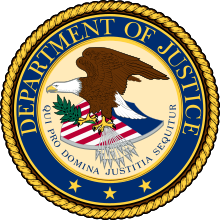Stephen Heymann
| Stephen Heymann | |
|---|---|
 |
|
| Assistant United States Attorney for the District of Massachusetts | |
| Personal details | |
| Occupation | Attorney |
Stephen P. Heymann is an Assistant U.S. Attorney for the District of Massachusetts. He heads U.S. Attorney Carmen Ortiz’s Internet and Computer Crimes Unit. Heymann is one of about one hundred Assistant U.S. Attorneys working in that office.
Heymann is a career federal prosecutor. He is the son of former United States Deputy Attorney General Philip Heymann, with whom Ortiz worked on judicial reform in Guatemala. According to the National Law Journal, "Heymann has long been recognized as a national expert in electronic crimes, prosecuting cutting-edge cases."
He has been a Special Attorney with the U.S. Department of Justice's Organized Crime Strike Force, Deputy Chief of the Criminal Division of the Massachusetts U.S. Attorney's Office. He heads that office's Internet and Computer Crimes Unit, one of the first offices of its kind in the U.S.
In 1996, Heymann worked with investigators and was a lead prosecutor in the arrest and conviction of Julio César "Griton" Ardita, an Argentine man accused of hacking into NASA and Department of Defense computers. The court-ordered wiretap that made it possible to identify and prosecute Ardita was the first of its kind.
From his apartment in Buenos Aires, Ardita accessed a computer network at Harvard. He stole passwords as Harvard users accessed other networks. By the time he was caught, Ardita had hacked into the U.S. Department of Defense, NASA's Jet Propulsion Laboratory, NASA Ames Research Center, the Naval Research Laboratory, and the Naval Command Control and Ocean Surveillance Center.
Heymann said investigators worked with Harvard so they could track an intruder without violating users' privacy. He said the compromised Harvard network comprised 16,500 accounts and 13,000 users, sending out about 60,000 email messages daily. Investigators, he explained used a high-speed computer to sift through messages, focusing on 10 to 15 keywords that matched the suspect's profile. According to Heymann, investigators believed there were only two instances in which they had read a complete message that did not come from Ardita.
In a press release after the warrant for Ardita's arrest was announced, Attorney General Janet Reno said, "This case demonstrates that the real threat to computer privacy comes from unscrupulous intruders, not government investigators", going on to praise the creation of procedures that focused on the intruder's unlawful activities. "This is doing it the right way," she said. "We are using a traditional court order and new technology to defeat a criminal, while protecting individual rights and Constitutional principles that are important to all Americans." At her weekly press conference, she elaborated: "This is an example of how the Fourth Amendment and a court order can be used to protect rights while adapting to modern technology."
...
Wikipedia
